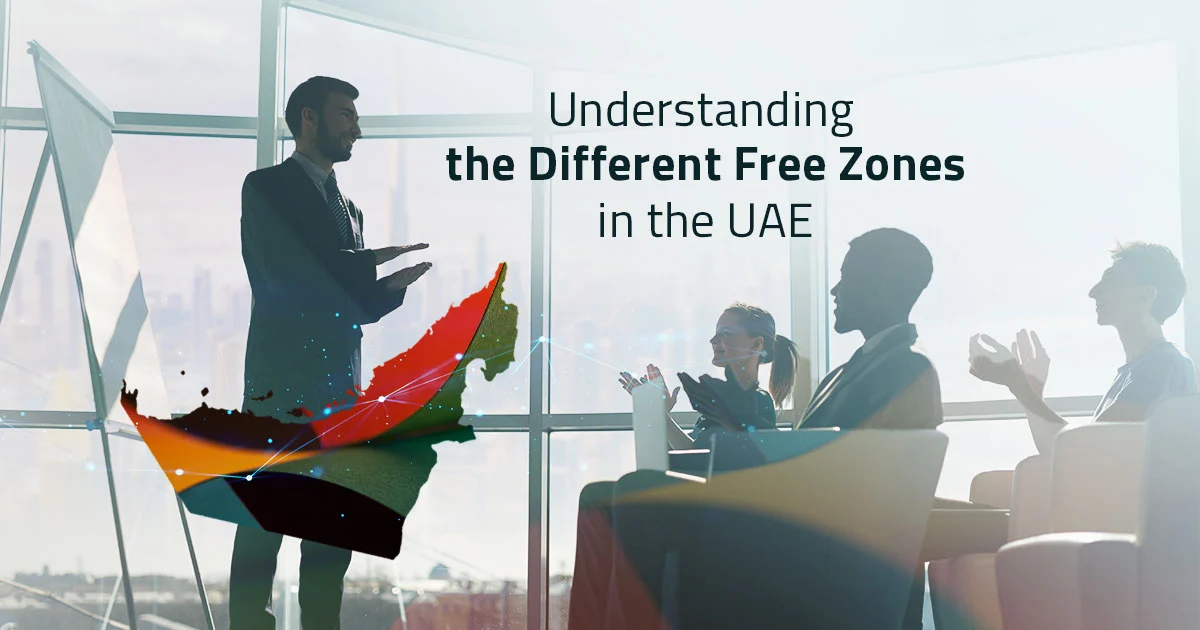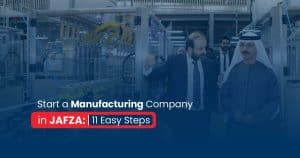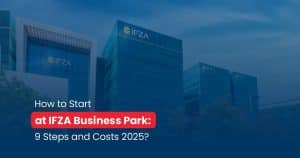Setting up a business in Dubai is not a walk in the park. From choosing your trade activity and getting a freezone visa to picking an ideal setup location and the tedious paperwork, it can get quite challenging. However, with the right resources and guidelines, business setup in Dubai can prove to be rewarding.
Let’s look into one such aspect – picking an ideal setup location.
You can set up your business in Dubai in three different jurisdictions based on your business requirements:
- Mainland
- Offshore
- Freezone
In this blog, we shall take a deeper look into a free zone. A free zone is an economic area featuring special advantages over other trade areas. It is one of the best locations for business setup in Dubai, due to its various amenities, trade flexibility, and government incentives.
There are more than 40 free zones in the UAE, and they all provide quick and inexpensive company formation and licensing easy workflows. Among the many advantages of working in these areas is the freezone visa.
Follow a simple five-step process to acquire a freezone visa in Dubai:
– Register for online services
Begin by applying for your freezone visa via the E-Channel services. This process helps eliminate long queues and tedious paperwork. In addition, you can simply give the necessary information to business setup consultants who can swiftly complete this process for you.
We recommend not leaving the country during the business setup process, as it can
– Entry Permit
Now it’s time to apply for your entry permit to the UAE. You will receive a temporary 60-day visa to enter and live in the UAE. Within 60 days, all your business setup processes should be completed.
– Change of Status
Once you get the entry permit, you can finalize the status adjustment. To get the freezone visa, you essentially need to activate your entry permit.
You must give your passport to the immigration officials, who will stamp and activate your visa in order to complete this step. However, even if you are not in the UAE, you can still use the visa by traveling to the country and showing the immigration officer your passport.
– Register for medical screening and Emirates ID
Next, you must clear the medical fitness test. These tests include a chest x-ray and a blood test. This is to make sure you don’t have any infectious diseases that could endanger the health of other people around you. Once cleared, you can register for your Emirates ID, which will allow you to access further services in the UAE.
– Stamp your residence visa
The final stage is to get the UAE actual residency visa attached to your passport. Presenting your passport to the appropriate immigration authorities here in the UAE will enable you to achieve this. You can live and work in the country till your visa expires.
A company formation specialist can handle the specifics for you, as they can with every step of this procedure. After the visa approval, a business consultant can assist in communicating with all concerned government bodies. You can also hire PRO services in Dubai to get your visa process done faster and without discrepancies.
Two Types of Freezone Visa:
In Dubai, there are two typical types of freezone visas. The investor visa is the first. Typically, this is necessary when opening a business in a free zone. The investor visa generally has a three-year validity period.
The employment visa is another popular category of visa. This is sponsored by a company and connected to a particular position in the UAE. Employment visas typically have a three-year validity period.
Both types of visa holders are eligible to apply for dependent visas for their partners, kids, or domestic helpers like maids and drivers.
Freezone Visa Validity
All freezone visas are only valid for a particular duration. They are not unlimited or indefinite. The date of expiration will be mentioned on the visa. In addition, the employment visas linked to indefinite employment will expire. All freezone visas can be renewed, however.
For entrepreneurs and business owners alike, here are some of the best free zones in Dubai:
- Dubai Multi-Commodities Center (DMCC)
- Jebal Ali Free Zone (JAFZA)
- International Free Zone Authority (IFZA)
Advantages of Setting Up in a Freezone:
- 100% foreign ownership
- Tax exemption for import or export
- 0% tax rate on personal and corporate income
- Numerous business setup packages at competitive prices
- Easy access to regional markets
- High-quality infrastructure
To set up a business in a Dubai-free zone, it’s advisable to consult a company formation expert. As professionals in the industry, they can help ensure that your application is completed correctly and save any unnecessary delays.





